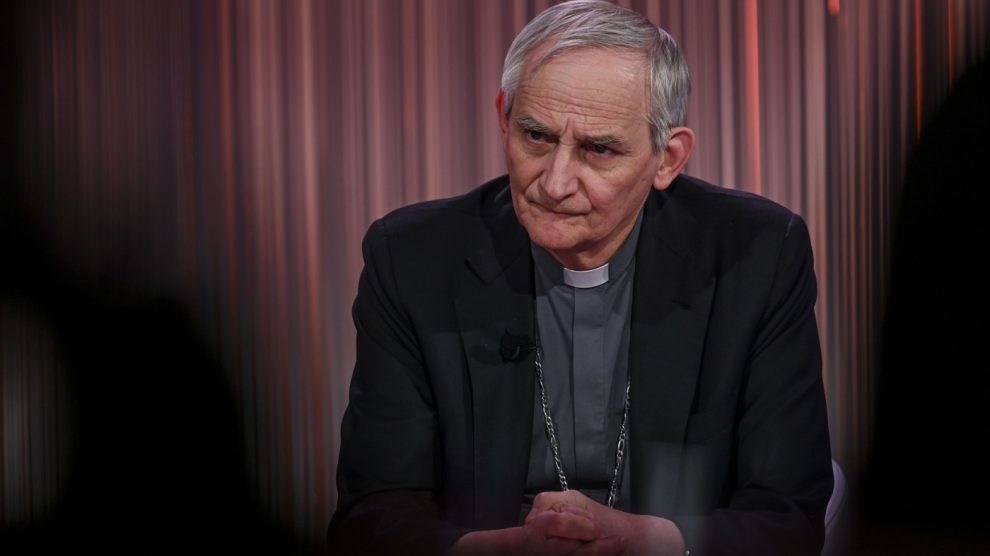Pope Francis’ Peace Envoy is in China to discuss Ukraine. Cardinal Matteo Zuppi is in Beijing for a three-day diplomatic mission, the last leg of a wider peace effort. The trip is chiefly about humanitarian mediation, centred on recovering the Ukrainian children deported to Russia and facilitating the exchange of prisoners to – ideally – ease tension and bring positions closer together.
- Cardinal Zuppi had previously travelled to Kyiv, Moscow and Washington. In Beijing, he is set to meet Li Hui, special envoy for Eurasian affairs, who has also recently been on a diplomatic tour geared at finding a solution to the war – touching down in Warsaw, Paris, Brussels, Moscow and Jeddah.
- He’s also expected to meet – exceptionally – with Chinese Prime Minister Li Qiang.
Guido Crosetto talks peace. The Italian Defence Minister, who recently said that the government had been working hard on Cardinal Zuppi’s mission in China, noted that “attempts at a solution” to the war may emerge “in a reasonably short time” – i.e. “the next 7-8 months,” considering it’s unlikely Russian President Vladimir Putin would want to stop the conflict before the Russian elections on March 18.
- Foreign Minister Tajani has also been asking Beijing to pressure Moscow into stopping the offensive, although Italy’s geopolitical (re)positioning impacts China’s receptiveness to an extent.
Why the trip matters. Cardinal Zuppi’s mission is predicated on the Holy See’s web of multilateral relations and political impartiality. “The very fact that the Chinese authorities receive an envoy from the Pope is unprecedented,” wrote Repubblica. While several cardinals have travelled to China, they have always treated religious or cultural issues. This is the first time a cardinal will discuss such a pressing theme on the global agenda.
- This entails “a qualitative leap in bilateral relations” between the Holy See and China and evidences the attention that the latter pays to the former’s political positions, even in the absence of formal diplomatic ties.
The view from Beijing. “China has always been actively committed to promoting peace talks,” is the official line from Chinese authorities. “We are ready to cooperate with all parties and continue to play a constructive role in easing tension.” That’s despite never openly condemning Russia’s war of aggression and maintaining very close ties with Moscow, including economic and diplomatic support.
- Still, a continued conflict is hardly in Beijing’s interests – especially given its multiple economic hardships and reliance on trade with Western nations, which outstrips business ties with Russia by several orders of magnitude.
- All this means there’s leeway for working towards the end of the conflict. And the Holy See might just be what’s missing.




